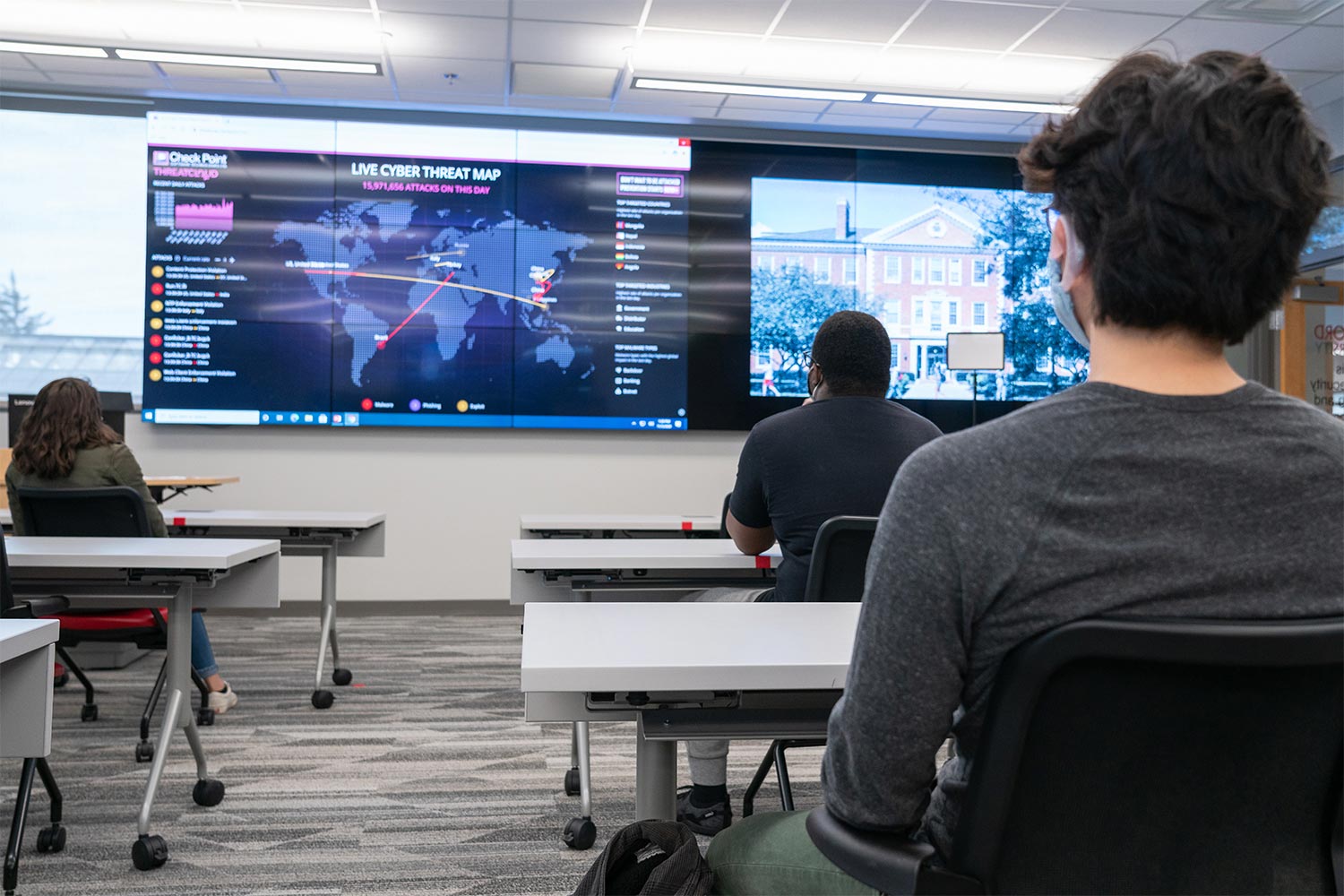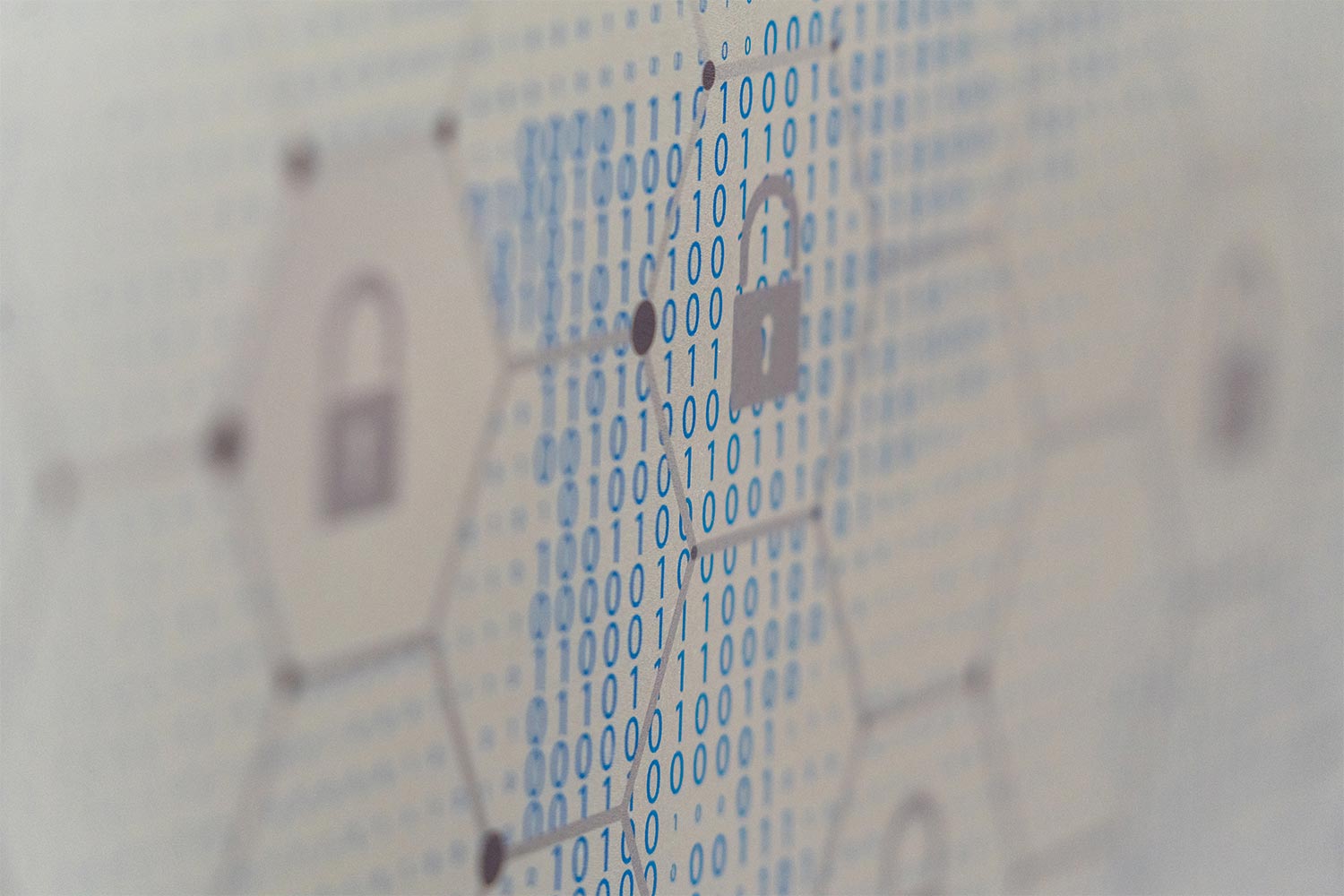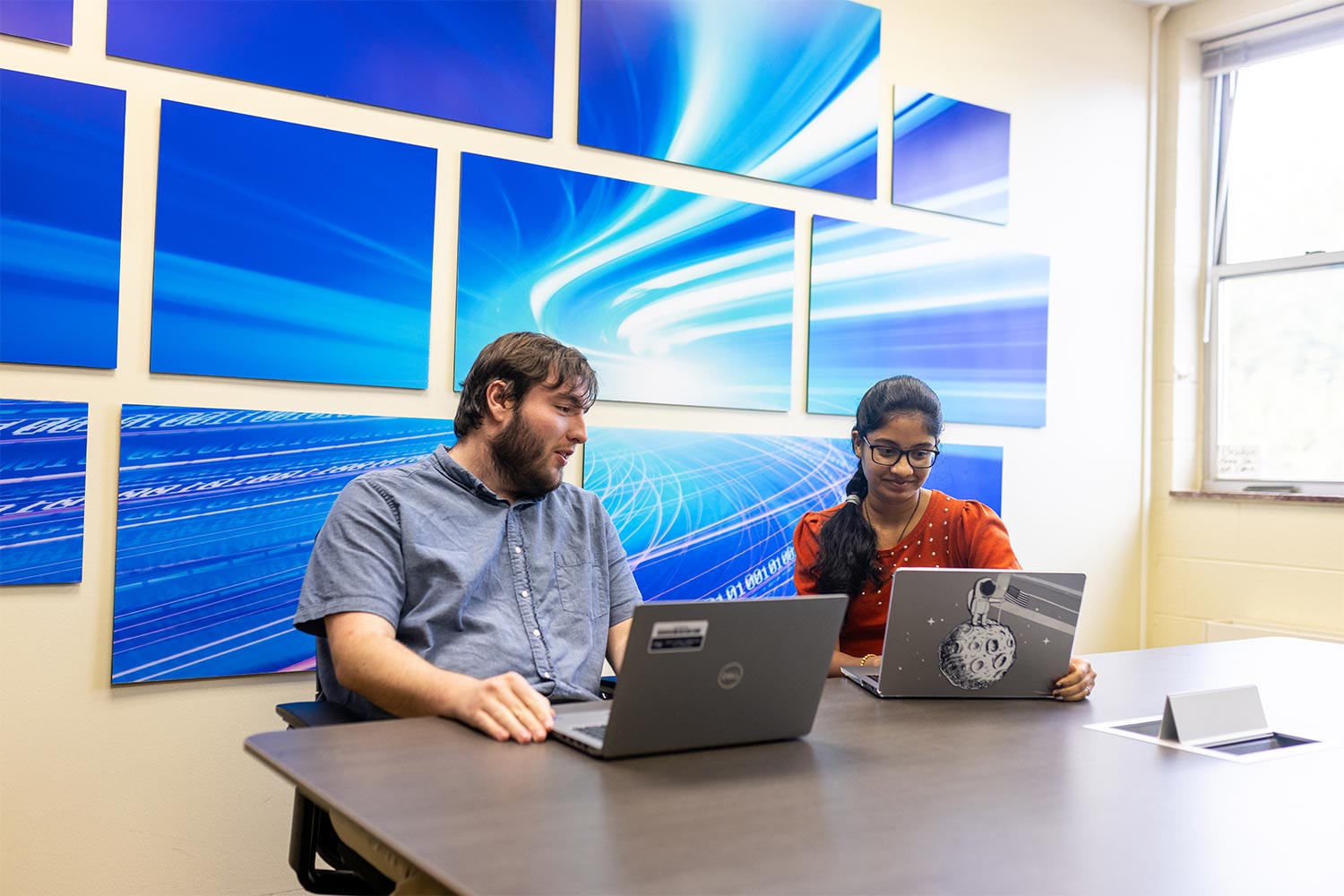Radford University
Computer Science
- Degree Type
-
- Bachelor of Science
- Location
-
- Main Campus in Radford, VA
- Format
-
- In-Person
Overview
With the increase in usage of technology used to develop products, provide services and communicate with clients, business leaders who understand technical aspects have an advantage. With the Information Science program, you’ll complete a combination of Computer Science classes and Business classes, a true hybrid of business and technology.
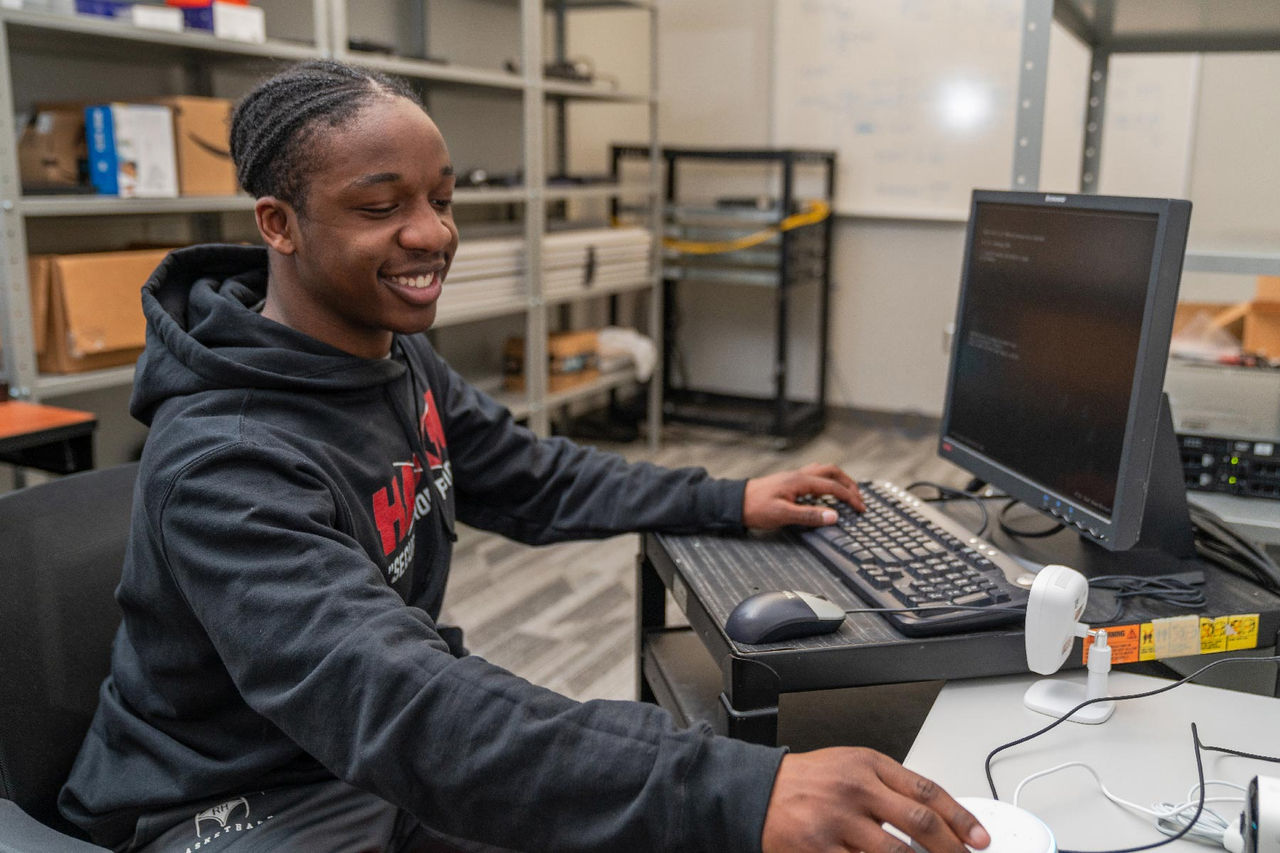
Why Study Computer Science at Radford?
We have a variety of options
We offer two Bachelor of Science degrees (Computer Science or Information Systems), three minors (Computer Science, Information Systems, or Information Technology), two undergraduate certificates (cybersecurity and web development), and an online degree completion program.
Students earn a Bachelor of Science degree in either Computer Science and Technology or Information Science and Systems. Both programs prepare you for a variety of careers in industry or government and for graduate study. Within the Computer Science and Technology degree program, you can choose among four Concentrations: Computer Science, Database, Networks, and Software.
Computer Science Concentration
The ABET-accredited Computer Science concentration includes a broad foundation in the core areas of computer science, including operating systems, computer organization, programming language design, and advanced study of algorithms and theoretical computer science. Technical elective courses provide specialization in two areas of your choice.
Database Concentration
The Database concentration educates students in all aspects of data management including database design, database administration, data warehousing, data visualization, data mining, and analysis.
Networks Concentration
Computer and communications networks are now a part of our everyday lives. The Networks concentration prepares you for careers in network design and network administration. Courses expose you to a broad spectrum of networking concepts and technologies in both a theoretical classroom setting and an advanced networks lab.
Software Engineering Concentration
The Software Engineering concentration is designed to produce designers for large, complex software systems. These courses cover current best practices and process models of the software development life cycle, with a detailed study of all process phases—from eliciting requirements through operations and maintenance. Emphasis is on design attributes that make it possible to efficiently implement, extend, and maintain large systems.
Careers and Internships
The School of Computing and Information Sciences has built strong relationships with employers over the years. Our students and graduates go on to have successful internships and careers.
Here are a few of the employers who have hired them:
- 1901 Group
- Amazon
- Carilion Clinic
- CGI
- Eastman
- Elder Research
- Excella
- Modea
- Peraton
- Virginia Tech
Looking to Stay Local? Here are some local companies our alums are at:
- ACI
- block.one
- Carilion Clinic
- Corvesta
- FoxGuard
- Modea
- Moog
- NewCity
- Ozmo
- Qualtrax
- TMEIC
- TORC Robotics
Student Employment
Student employment opportunities, including work-study and student wage positions, will be listed under the university's Handshake page.
Internships/Co-Ops
- Amazon
- CGI
- Exelaration
- Microsoft
- Peraton
- CSIIP (an internship program to submit your application to all participating companies in Virginia)
Note: A cooperative education (co-op) is different from an internship. An internship is typically completed in one semester, while a co-op will extend through a longer period as you continue your educational career.
Hands-On Opportunities
Student Organizations
The UPE, ACM, and Equality in Computing club work with computing and information technology disciplines:
Upsilon Pi Epsilon
Upsilon Pi Epsilon is the only national computer science honor society and has chapters across the United States. It’s for students and faculty who exhibit superior scholastic and professional achievement in the computing and information disciplines. It’s also recognized by the Association for Computing Machinery (ACM) and the IEEE Computer Society.
Association for Computing Machinery
ACM, the Association for Computing Machinery, is an international scientific and educational organization dedicated to advancing the arts, sciences, and applications of information technology. With a worldwide membership of over 100,000, ACM unites the world's computing students, educators, researchers, and professionals to inspire dialogue, share resources, and address the field's challenges.
Equality in Computing Club
The Equality in Computing Club is dedicated to promoting equality among the students here within Radford University’s IT majors. ECC works in collaboration with Radford’s Career Center to organize IT-specific social events, career training workshops, and other related events to make sure everyone has the same opportunities to become successful.
Cyber Defense Club
The Cyber Defense Club is devoted to providing an environment for our members to expand and share their skills and experience in the cyber security field.
Related Programs and Centers
Technology and Computing Labs
Among the various computing facilities around campus, the College and School maintain several technologically advanced labs in Davis Hall. These are available for student use during normal operating hours, with the exception of reserved classroom times.
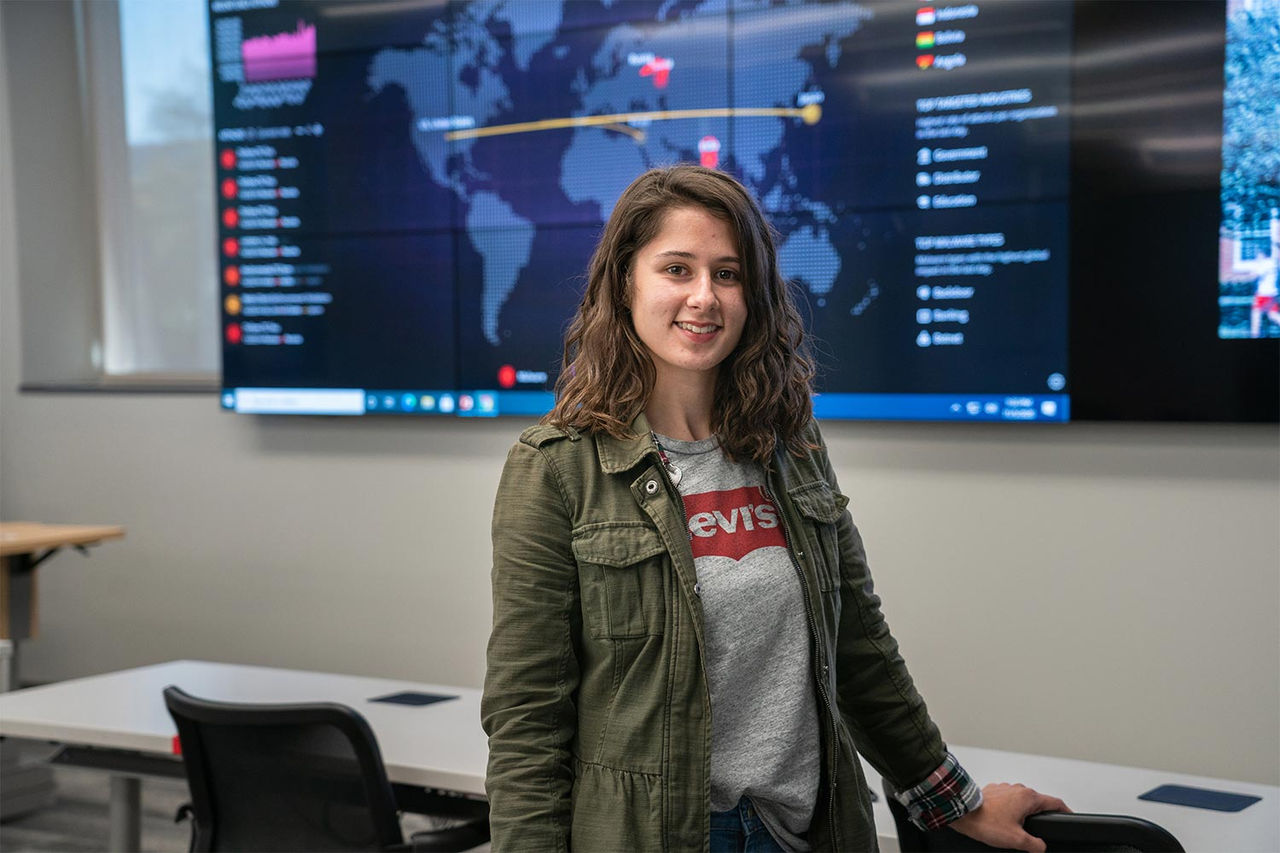
Ready to Study at Radford?
We want to get to know you better and we are excited that you are ready to take your next step and learn more about us. We are here to help you and look forward to working with you during your college search process.
